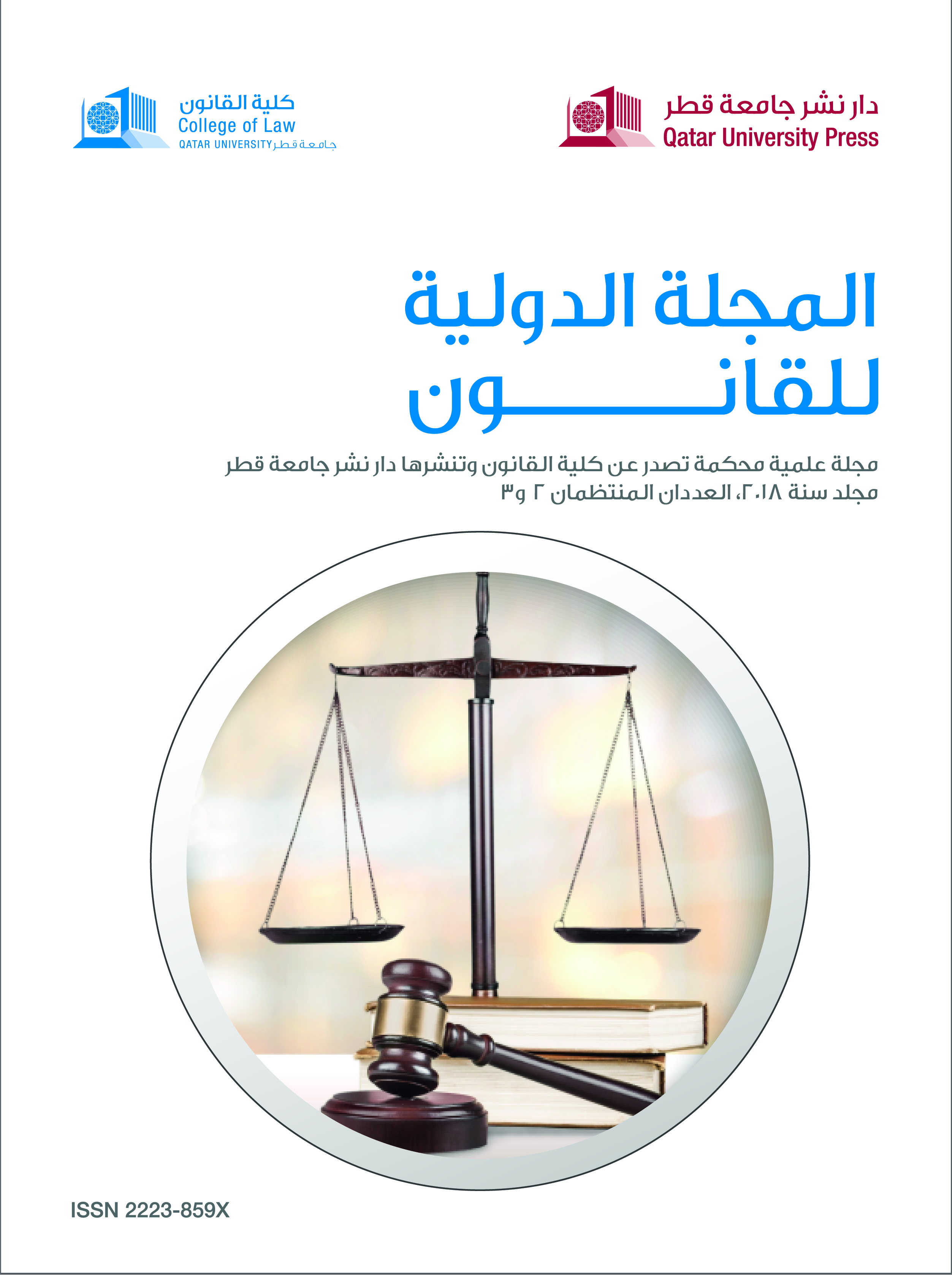هل التطبيق الصارم للقانون هو السبيل الأمثل دوماً؟ بين المقاربة الجزئية والمنهج الشمولي في فهم مجتمعات ما بعد الصراع
الملخص
يستند هذا البحث على فرضية مفادها أن الاعتماد المبالغ فيه على قوة وسيادة القانون في العدالة الانتقالية يفشل في تحقيق الأهداف البعيدة المدى المتمثلة في التئام المجتمع والوصول إلى المصالحة، خصوصًا في مجتمعات ما بعد الصراع. وبسبب الطبيعة السياسية والدولية والمؤسسية التي تصاحب العدالة الانتقالية، والتي تتمثل في التطبيق الحرفي للقانون، تُفرض القيود على استخدام آليات أخرى رغم قابليتها وصلاحيتها للتطبيق. وتكمن المشكلة الأساسية فيمن يملك اتخاذ القرار في تطبيق أية معالجة، وفشل العدالة الانتقالية في إدراك أهداف أخرى خارج إطار العدالة الانتقامية وفرض شرعية الدولة في مرحلة ما بعد النزاع. ومن خلال التركيز على السمات والخصائص المذكورة أعلاه والتي تصاحب التطبيق الصارم لنص القانون، يلقي البحث نظرة على المشاكل المصاحبة لهذا التطبيق، ثم يناقش البدائل شبه القضائية مثل نظام الجاكاكا (Gacaca) ولجان تقصي الحقائق والمصالحة، وبعدها يلقي نظرة على الممارسات التي طُبقت في مجتمعات أوروبا الشرقية عقب انتهاء حقبة الشيوعية.
المقاييس
##plugins.themes.bootstrap3.article.details##
القانون الجنائي الدوليالعدالة الانتقاليةالبوسنةنظام الجاكاكاسيادة القانون
Arriaza, Laura, and Naomi Roht-Arriaza, Social reconstruction as a local process, 2.2 Int’l J. Transitional Just. 152 (2008).
Biserko, Sonja, A look into the past means a step towards the future, Bosnian Institute (Oct.–Dec. 2004), http://www.bosnia.org.uk/bosrep/report_format.cfm?articleid=1154&reportid=166 (last visited Jan. 2, 2018).
Corey, Allison, and Sandra F. Joireman, Retributive justice: The Gacaca courts in Rwanda, 103.410 Afr. Aff. 73 (2004).
Daly, Erin, Between punitive and reconstructive justice: The Gacaca courts in Rwanda, 34 NYU J. Int’l L. & Pol. 356 (2001–2002).
Davis, Michael, What punishment for the murder of 10,000? 16.2 Res Publica 101 (2010).
Eminović, Ensar, Ruski veto je geto, Al Jazeera Balkans (July 13, 2015), http://balkans.aljazeera.net/vijesti/ruski-veto-je-geto (last visited Jan. 2, 2018).
Gordon, Gregory S., Toward an international criminal procedure: Due process aspirations and limitations, 45 Colum. J. Transnat’l L. 635 (2006–2007).
Hafner, Donald L., and Elizabeth B. L. King, Beyond traditional notions of transitional justice: How trials, truth commissions, and other tools for accountability can and should work together, 30 B.C. Int’l & Comp. L. Rev. 91 (2007), http://lawdigitalcommons.bc.edu/iclr/vol30/iss1/6 (last visited Jan. 2, 2018).
Harris, D. J., Cases and Materials on International Law (2004).
Hazan, Pierre, The Revolution by the ICTY: The concept of justice in wartime, 2.2 J. Int’l Crim. Just. 533 (2004).
Less, Timothy, The next Balkan wars, New Statesman (June 6, 2016), https://www.newstatesman.com/world/2016/06/next-balkan-wars (last visited Jan. 2, 2018).
Lundy, Patricia, and Mark McGovern, Whose justice? Rethinking transitional justice from the bottom up, 35.2 J. L. & Soc. 265 (2008).
McAdams, A. James, Transitional justice: The issue that won’t go away, 5.2 Int’l J. Transitional Just. 304 (2011).
McEvoy, Kieran, Beyond legalism: Towards a thicker understanding of transitional justice, 34.4 J. L. & Soc. 411 (2007).
Ohlin, Jens David, A meta-theory of international criminal procedure: Vindicating the rule of law, 14 UCLA J. Int’l L. & Foreign Aff. 77 (2009).
Rettig, Max, Gacaca: Truth, justice, and reconciliation in post-conflict Rwanda? 51.3 Afr. Stud. Rev. 25 (2008).
Reyntjens, Filip, Rwanda, ten years on: From genocide to dictatorship, 103.411 Afr. Aff. 177 (2004).
Schabas, William A., Genocide trials and Gacaca courts, 3.4 J. Int’l Crim. Just. 879 (2005).
Sivac-Bryant, Sebina, The Omarska Memorial Project Project as an example of how transitional justice interventions can produce hidden harms, 9 Int’l J. Transitional Just. 170 (2015).
Smeulers, Alette, Punishing the enemies of all mankind, 21.4 Leiden J. Int’l L. 971 (2008).
U.N.S.C., Secretary general report on rule of law and transitional justice in conflict and postconflict societies, U.N. Doc. S/2004/616 (Aug. 23, 2004).
Vasallo, Mark, Truth and Reconciliation Commissions: General considerations and a critical comparison of the commissions of Chile and El Salvador, 33 U. Miami Inter-Am. L. Rev. 153 (2002).
Waterfield, Bruno, US envoy Richard Holbrooke ‘did’ offer Radovan Karadzic immunity, The Telegraph (Mar. 23, 2009), http://www.telegraph.co.uk/news/worldnews/northamerica/usa/5039381/US-envoy-Richard-Holbrooke-did-offer-Radovan-Karadzic-immunity.html (last visited Jan. 2, 2018).
Wierzynska, Aneta, Consolidating democracy through transitional justice: Rwanda’s gacaca courts, 79.5 NYU L. Rev. 1934 (2004).
Wippman, David, Atrocities, deterrence, and the limits of international justice, 23.2 Fordham Int’l L. J. 473 (1999).
Zuvela, Maja, Srebrenica buries 127 victims of massacre, Serbs absent over genocide denial, Reuters (July 11, 2016), https://ca.reuters.com/article/topNews/idCAKCN0ZR1IC (last visited Jan. 2, 2018).
Cases
Application of the convention on the prevention and punishment of the crime of genocide (Bosnia and Herzegovina v. Serbia and Montenegro), Oral Pleadings, ICJ Rep., 53 (March 7, 2006).


